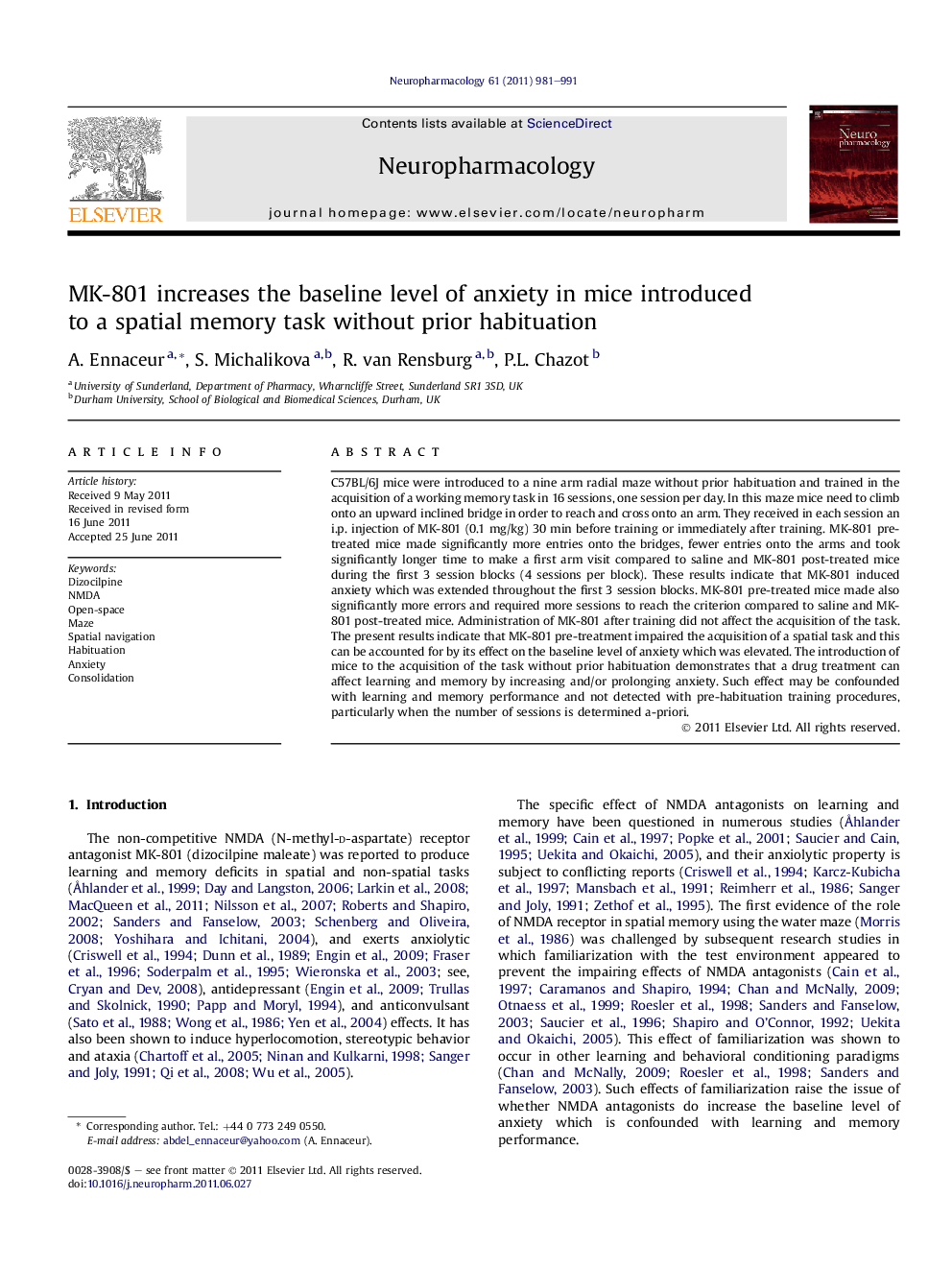| Article ID | Journal | Published Year | Pages | File Type |
|---|---|---|---|---|
| 2493613 | Neuropharmacology | 2011 | 11 Pages |
C57BL/6J mice were introduced to a nine arm radial maze without prior habituation and trained in the acquisition of a working memory task in 16 sessions, one session per day. In this maze mice need to climb onto an upward inclined bridge in order to reach and cross onto an arm. They received in each session an i.p. injection of MK-801 (0.1 mg/kg) 30 min before training or immediately after training. MK-801 pre-treated mice made significantly more entries onto the bridges, fewer entries onto the arms and took significantly longer time to make a first arm visit compared to saline and MK-801 post-treated mice during the first 3 session blocks (4 sessions per block). These results indicate that MK-801 induced anxiety which was extended throughout the first 3 session blocks. MK-801 pre-treated mice made also significantly more errors and required more sessions to reach the criterion compared to saline and MK-801 post-treated mice. Administration of MK-801 after training did not affect the acquisition of the task. The present results indicate that MK-801 pre-treatment impaired the acquisition of a spatial task and this can be accounted for by its effect on the baseline level of anxiety which was elevated. The introduction of mice to the acquisition of the task without prior habituation demonstrates that a drug treatment can affect learning and memory by increasing and/or prolonging anxiety. Such effect may be confounded with learning and memory performance and not detected with pre-habituation training procedures, particularly when the number of sessions is determined a-priori.
► Omission of the habituation sessions in a spatial memory test indicates group differences in baseline level of anxiety. ► MK-801 pre- and not post-treatment impairs acquisition of spatial navigation task. ► MK-801 pre-treatment increases and prolongs anxiety and account for learning and memory deficit.
